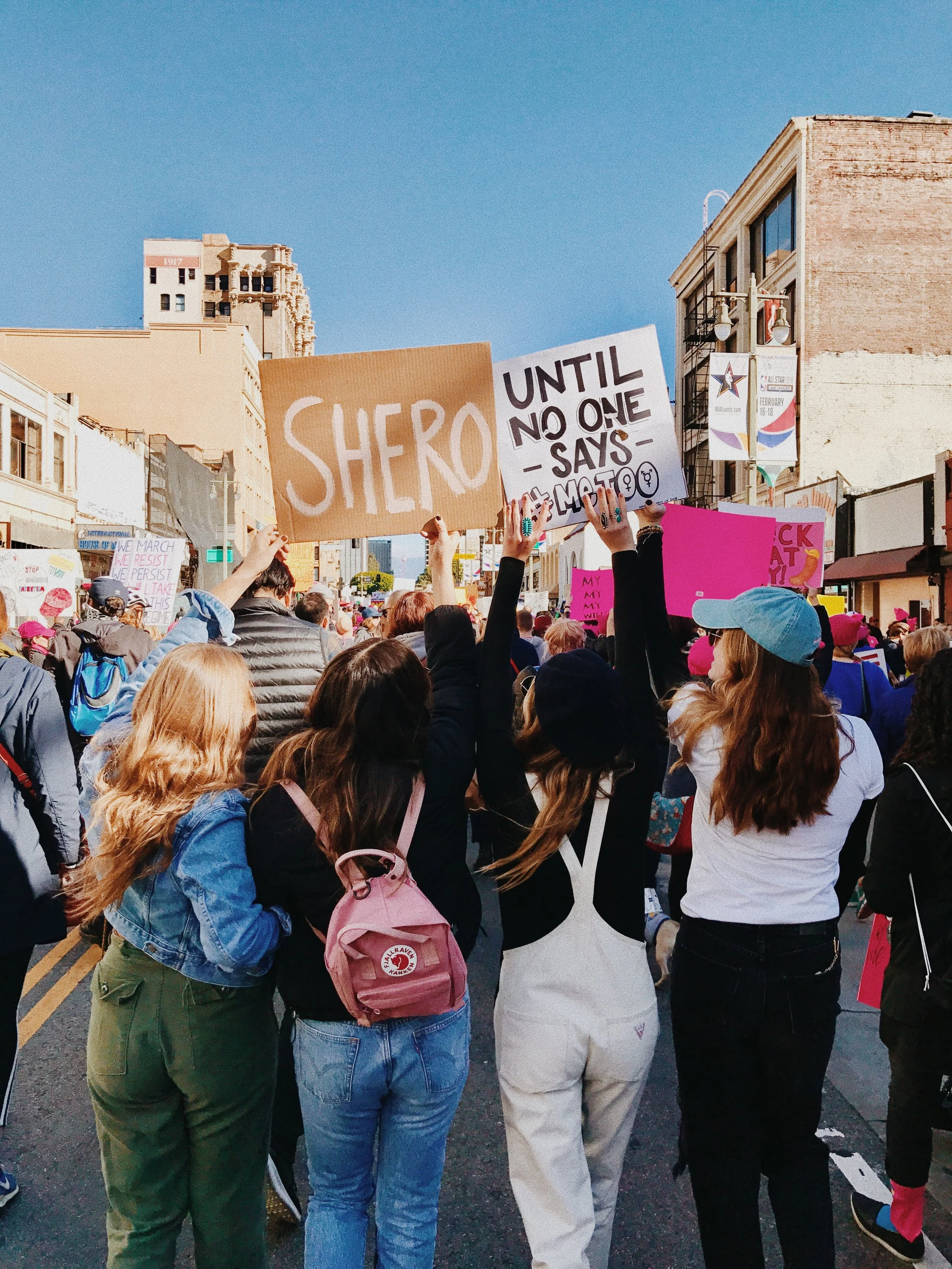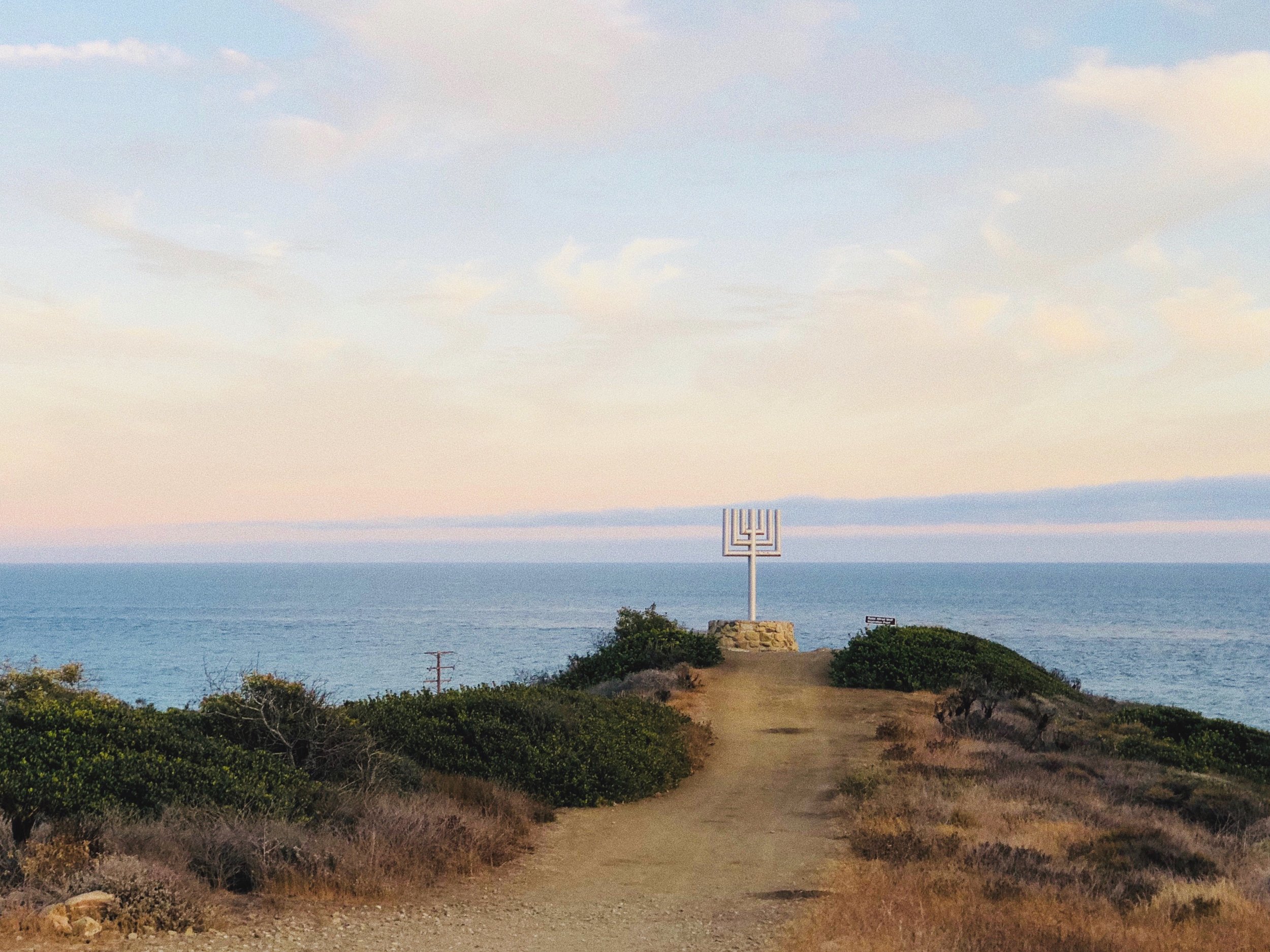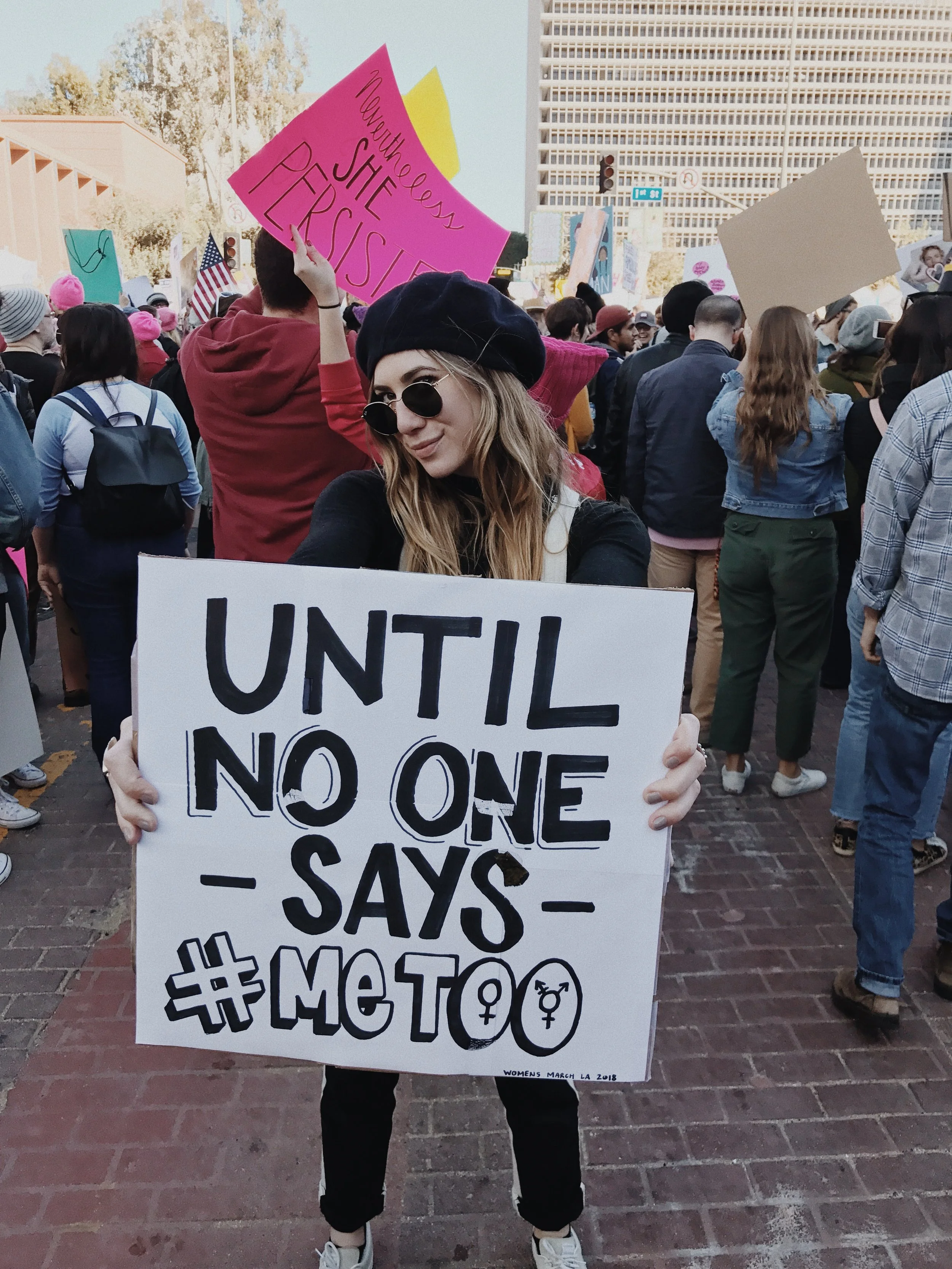Still marching
The Women’s March is nearing its third run around the Capitol this weekend, Saturday, January 19th. The date aligns with last year’s march, which took place the same weekend, which honored the first Women’s March, the same weekend in its birth year of 2017, the day after that guy was sworn in.
Following inauguration day, three times the number of people showed up for women in Washington D.C. than did for the president’s swearing-in. Nearly 7 million people showed up worldwide. In Los Angeles alone, 750,000 people. We powered up but the hundreds of thousands, choosing to put aside the hope we’d lost for just one day. To press pause, and show up for our own limitations and for all the voices that have been squandered. January 21st, 2017 marks the largest single-day protest in U.S. history.
When I marched in 2017, I felt sincerely part of a united front. After a night of watching the world fall apart on television, a world that continues to shake and scream through a silver screen, the 2016 election results felt like rock bottom, and the inauguration cemented the new normal. The march was something else, it wasn’t so much about the person the public voted for as it was a promise that the rest of us would not be silenced. A vow that we would not go away.
Now gearing up for round three, our ammunition seems to be in short supply. Many don’t even know about Saturday’s march, and those that do are boycotting it. The previously revered march is in big trouble.
Women’s March leading board member, Linda Sarsour gained enormous visibility as the hijab-wearing Palestinian-American woman recognized as a “champion of change” by the Obama administration. Now, she’s facing serious ridicule. Sarsour has made public comments through her personal Twitter account with anti-Semitic notions, later defending herself as a victim of Islamophobia.
Likewise, co-president Tamika Mallory and board member Carmen Perez are under scrutiny for their association with Louis Farrakhan. Both have shown support for the minister, who is the leader of the religious group Nation of Islam. Farrakhan regularly spews anti-Semitic rhetoric and has been quoted praising Adolf Hitler on multiple occasions. Mallory defends her association with Farrakhan, claiming that as a black leader herself, she must cross into tenuous territory and support her community but, “does not agree with his statements” regarding Jewish people.
In recent news, the Women’s March has not so much apologized for past sentiments as they have reinstated the organization’s values as an inclusive space. After heavy pushback, they have made efforts to amend their relationship with the Jewish community. Sarsour publicly condemned the hate crime of Pittsburgh's Tree of Life Synagogue shooting, calling out for solidarity across all communities. This past November, she released an official statement through the Women’s March Facebook page, now shared on the homepage of the official site, proclaiming the organization’s leading values “against bigotry and discrimination in all their forms,” namely stating regret in not coming forward soon enough against anti-Semitism.
And finally, as of last week, The Democratic National Committee has bowed out as an official affiliate of the Women’s March. They’re not the only ones, leaving fewer than 200 in support compared to the 560+ progressive advocacy groups listed as official partners in 2017.
As a proud feminist and proud Jewish person, there are not adequate words to describe the disappointment I feel as a supporter and admirer of the Women’s March. I disagree intensely with the direct remarks and implications made by the leading members in regard to anti-Semitism and other hateful, inexcusable choices.
I have also never been a woman of color or of Islam. It is impossible for me to qualify the experiences of these women, who were also raised in an unjust world filled with judgement and inequality based on appearance and stereotyped affiliation.
In the case of the Women’s March, I do not believe that Jewish people and other affected groups are facing a this or that decision, but rather a this and that choice. There is no victim card big enough that cancels out one form of oppression for another. Despite these women acknowledging that now, the burn of anti-Semitism is too serious to put aside. That said, we still have work to do. We can still choose to show up. Not in spite of hate, but because of it.
Rabbi Sydney Mintz of Congregation Emanu-El in San Francisco wore her “pussy yallmukah” last Friday when she delivered a sermon on what Jews are facing at the Women’s March this year.
She recalls the book of Exodus, when Moses asks God to prove himself to the Jewish people. Translated, God tells Moses, “I will be what I will be.” Rabbi Mintz reimagines this phrase as, “I will be what you make of me.”
“We are going to be known by how we show up, or how we are no longer at the table,” says Rabbi Mintz. “I am not marching for the leaders of the Women’s March, I am marching for your children. I am marching for your grandchildren. When there was anti-Semitism, what did the Jewish people do? Did we walk away or did we show up?”
I am still marching. My feminism is intersectional, appreciating and constantly challenging myself to understand different approaches to equal opportunity. Anti-Semitism is not complicated, but politics circling race and religion certainly are. I believe I would be remiss to exclusively support a Jewish agenda against a Muslim, black, or Latina experience.
Resilience is not about putting aside the matter, but excelling beyond the singular cause.
On Saturday, I’ll be marching with all that I am. I’ll be marching as I did in the previous two years, an angry white chick eager to contribute to making this world a better and safer place for my sisters and brothers who are both like me and nothing like me at all.
As Jews, we have always been integral to the conversation of hate and have historically risen against it triumphantly. I strongly urge Jewish women and allies to consider not sitting this one out. We have the option to, once again, choose peace, and march in mind of our Jewish identity and other electric parts of ourselves. We must choose not to compromise the Jewish presence in a fight that needs our experience, too.
We will not go away. It is as much a mantra to women as it is to people of color as it is to immigrants as it is to the queer community as it is to many religious affiliations.
x Dani Pinkus
Photo taken at the 2018 Los Angeles Women’s March







